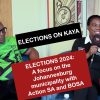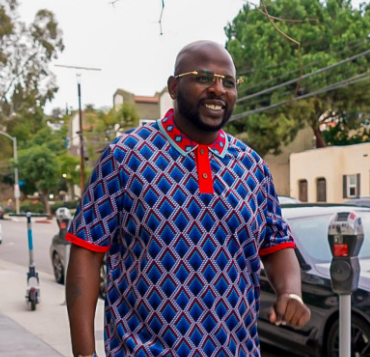-
play_arrow
On The Street On The Air | Kaya 959
Would the real South African music please stand up
By Nomali Cele
South African music has always been expressive. Whether it was coded with messages of the anti-apartheid struggle or an evolution of a proudly South African genre and style of music to fit what was happening in the world.
During the decade of 1996 – 2006, South African music enjoyed its debutante phase and was still being led by the youth of the day.
As we passed the first decade of our democracy, the music industry saw changes as well. Hip-hop was growing as an art form as well as a genre of music from the same spaces (mostly in Johannesburg’s Yeoville) that nurtured poetry from the likes of Lebo Mashile and Ntsiki Mazwai and music from Sliq Angel and M.X.O. and Amu
By the time 2006 dawned, the musical landscape had shifted and hip-hop was the flavour of the day. Indeed, young artists were coming out of Durban and their mandate was simple: fun music that the public could dance to. The success of hip-hop acts such as HHP and Skwatta Kamp was making the country’s music lovers take notice.
On the other end of the spectrum, Afro jazz, Afro-soul, Afro-pop and other African inspired soulful music were also on the rise. Acts such as Simphiwe Dana, Zamajobe and Siphokazi enjoyed the spotlight and the awards that came with it. Malaika, the Afro-pop trio, was one of the most celebrated groups of the day. With music that had a distinctly African sound gaining momentum, it put the day’s hip-hop under scrutiny with critics within (and outside) the industry finding that the genre had no identity. The criticism levelled at the artists was that hip-hop was still latching on to its increasingly irrelevant American roots instead of adapting and re-defining itself in the African context.
The reproach was unjust because motswako, a sub-genre of hip-hop that can be traced back to Botswana and Mahikeng, was alive and present in the music industry even though hip-hop was slated as being without African rooting. Artists such as Tuks Senganga, Morafe and Khuli Chana were flying the motswako flag high and promoting a local image of hip-hop. The same was happening with isiZulu rappers such as Zulu Boy and Zakwe.
In 2011, Zahara hit the music scene. Young and armed with a guitar and sincere lyrics, Zahara was the African music fan’s dream. Her lyrics were homegrown and her melodies were easy on the ear. A song about a train, 2011’s smash hit, Loliwe, saw her become one of the most played artists, most awarded the following year and highest selling since Brenda Fassie’s Memeza.
With critics demanding that artists make their music more South African, there were artists looking back for a way forward. In his 2008 album, Inqolobane, Zuluboy included a remix of Caiphus Semenya’s “Nomalanga.” The song, “Nomalanga Mntakwethu” plays out as a love letter from an exiled ANC cadre writing back to his love. He ends up with the narrator coming back home when Mandela is release from prison (and political parties are unbanned).
In 2011, Simphiwe Dana recorded a live DVD. One of the songs she performed was a cover of the Kiswahili song “Malaika,” which had been previously covered by Miriam Makeba. Malaika is one of the most famous and covered African songs. Hip-hop would later do its own version of this with a slew of songs dedicated to local icons including the likes of Steve Kekana and our very own Bob Mabena. The biggest song in this vein, however, was Cassper Nyovest’s “Doc Shebeleza.”
South African music, in the future, will always find its way if it remembers that while embracing current trends is good, taking a look back will always lead it to its heart.
What has been your favourite decade of music that we reflected upon this Youth Month?
Written by: Kayafm Digital
40 years later MUsic Youth month
Similar posts
-
MORE ARTICLES

Powerball Results: Draw Friday, 19 April 2024

WATCH: Gospel singer, Winnie Mashaba on her musical journey and the challenges she faced

WATCH: A focus on Gauteng as an economic HUB with Action SA and BOSA

WATCH: Big Zulu on his new body of work “Ngises’Congweni”, why he loves boxing and his creative process

From Horses to Wealth: Sizwe and the team respond to questions from their listeners
-
QUICK LINKS
UpComing Shows

The Hive
With Bonolo "Bee Sting" Molosiwa
Every "Hive" needs a Queen B and Bonolo "Bee Sting" Molosiwa is Kaya 959's honey who brings in the money. With her bubbly personality, infectious laugh, Bee Sting radiates positive energy which is all you need to get your weekend off to the best start. Don't miss the Afrobeat Dancehall Ragga (ADR) Top 10 on The Hive with Bee Sting every Saturday from 18h00 - 21h00.
close
Tune and Chill
with Tyroline Franks
Tune and Chill with Tyroline Franks on Kaya 959. Weekends, Saturday and Sunday, 15pm-18pm.
close
On the Beat
On the Beat with George Manyosi on Kaya 959. Saturday's, 18pm-21pm.
close
Touch of Soul
With T Bose
Kaya 959 takes back Sundays with A Touch of Soul, the only show bringing you soul and RnB music that touches your mind, body and spirit. The Best T in the City, T-bose takes you back to a time when music was made to last. A Touch of Soul is the perfect wind-down to your weekend. Sundays 14h00 to 18h00.
close
The Jazz Standard
with Brenda Sisane
The Jazz Standard with Brenda Sisane. Sunday's 12:00-15:00.
closeConnect with Kaya 959
DownLoad Our Mobile App
© 2024 Kaya 959 | On The Street On The Air










